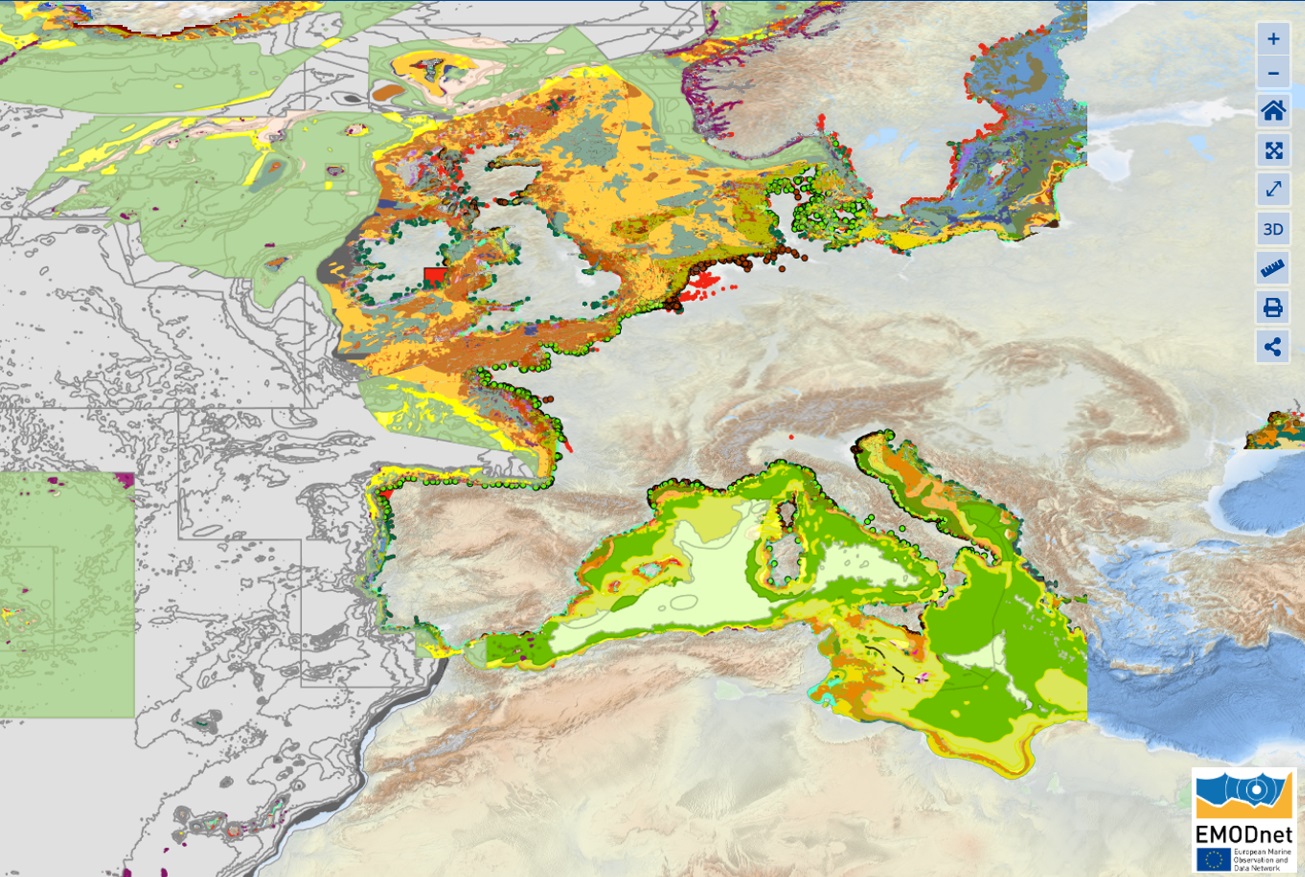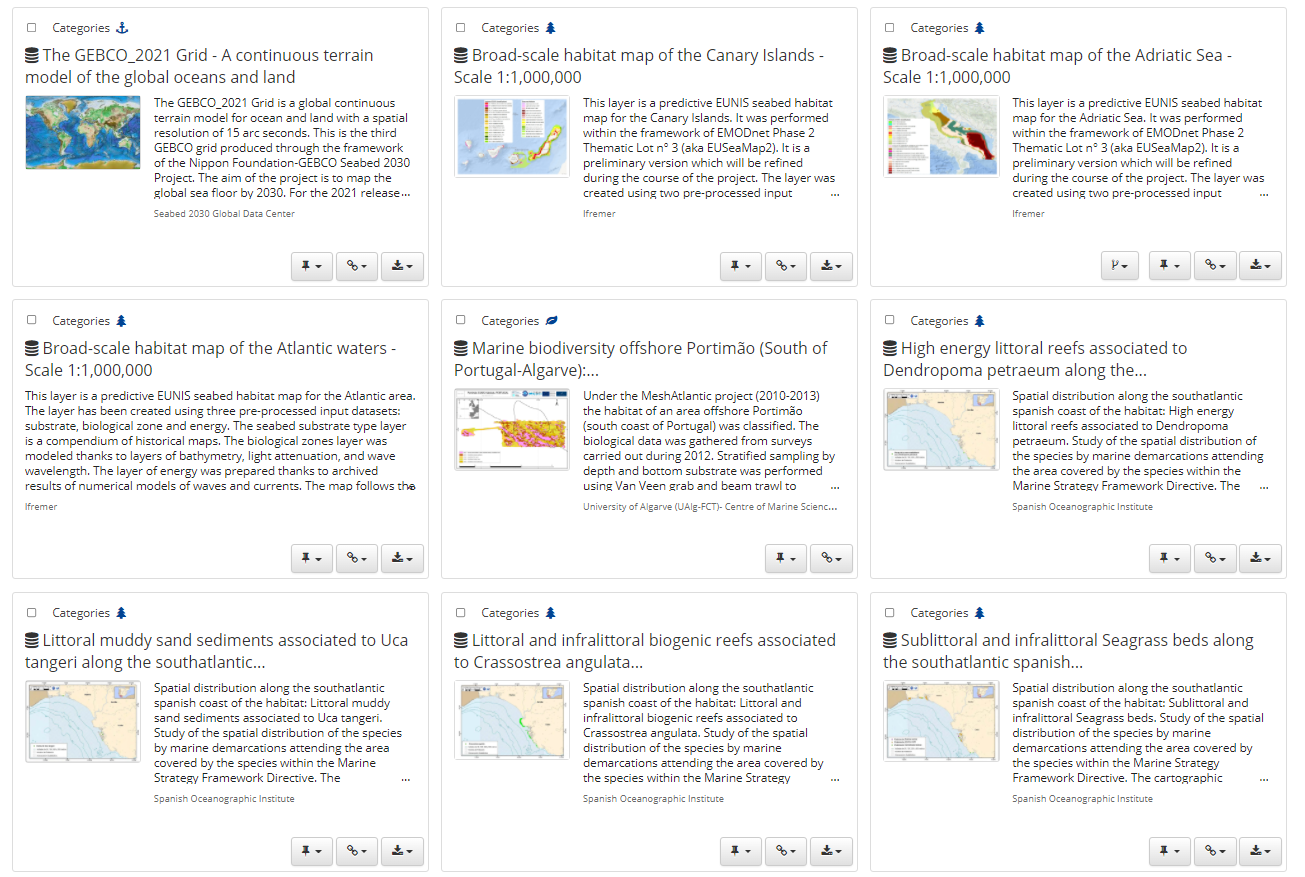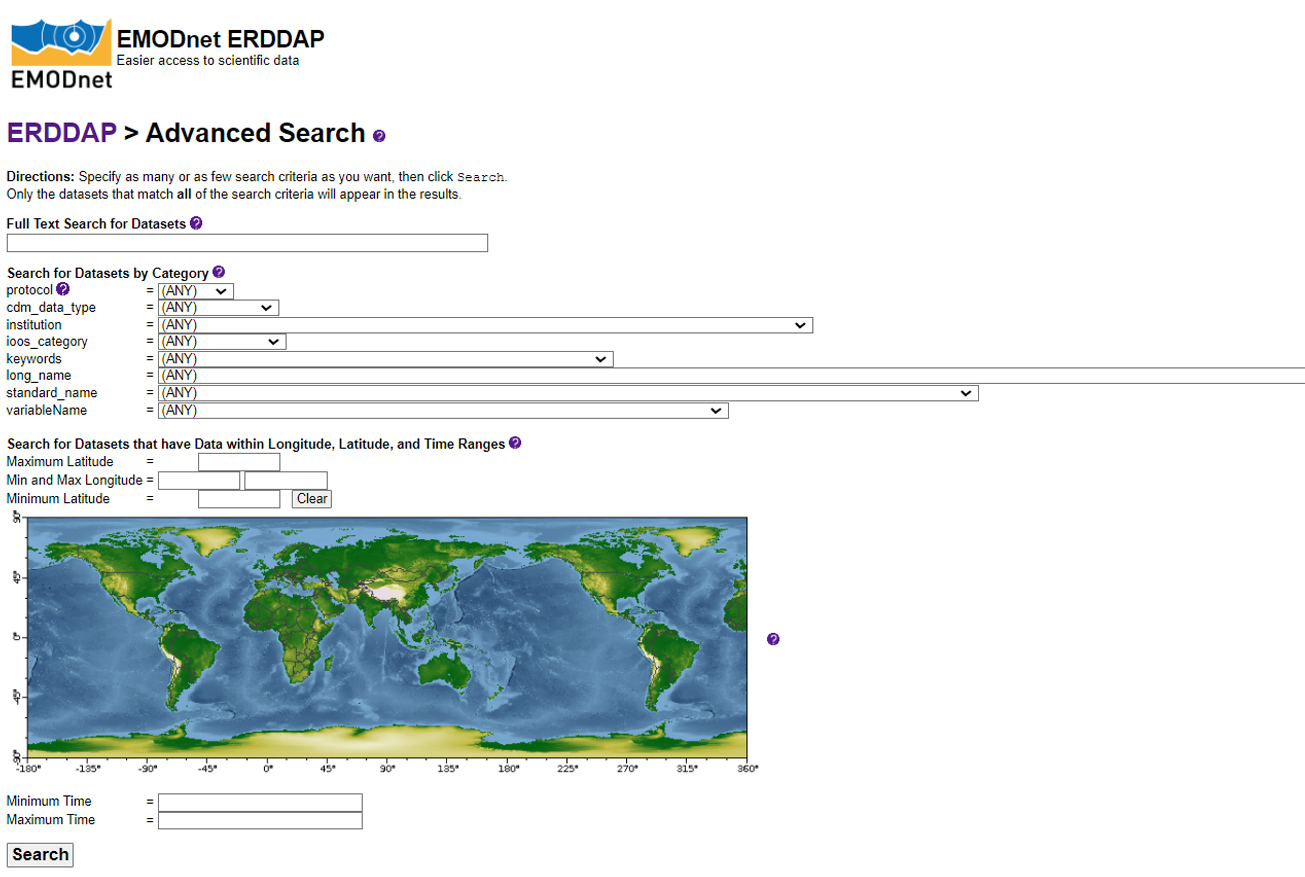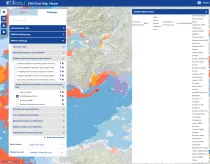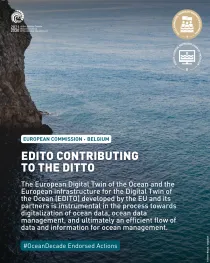News
Read the latest news on EMODnet.
This new data product, created by the University of Sheffield, matches the occurrences of macrobenthic invertebrate species in European seas to a map of seabed habitat types as defined in the EMODnet broad-scale seabed habitat map (EUSeaMap) by EMODnet Seabed Habitats. For this product we use the standard European Nature Information System (EUNIS) habitat classifications for marine sediments. This allows users to obtain lists of benthic species occurring in different habitat types.…
EMODnet is a long-established Implementing Partner for the UN Ocean Decade, working closely with other European key actors, other regional initiatives worldwide. At UNOC 3 EMODnet collaborated with the UN Ocean decade Coordination Office for Ocean Data Sharing (DCO ODS) in a session on regional marine data services and their key role in transforming primary data into FAIR data, open to all.
Explore the new and improved Introduction to Sustainability in Marinas platform. This resource guides you through socially and environmentally responsible marina management. It showcases the collective expertise of specialists in the sustainable marina sector, including EMODnet's role in providing open data and stimulating sustainable decision making within the marine sector.
On 3-6 June 2025, EMODnet Geology convened its final project meeting of the current phase in Reykjavik, Iceland. Hosted by the Icelandic Geological Survey (ÍSOR) in collaboration with the University of Iceland and the Geological Society of Iceland, the event brought together 55 delegates representing 32 project organisations from 27 countries. Over three productive days, participants reviewed progress, aligned on final deliverables, and ensured that the project remains on track to meet its…

